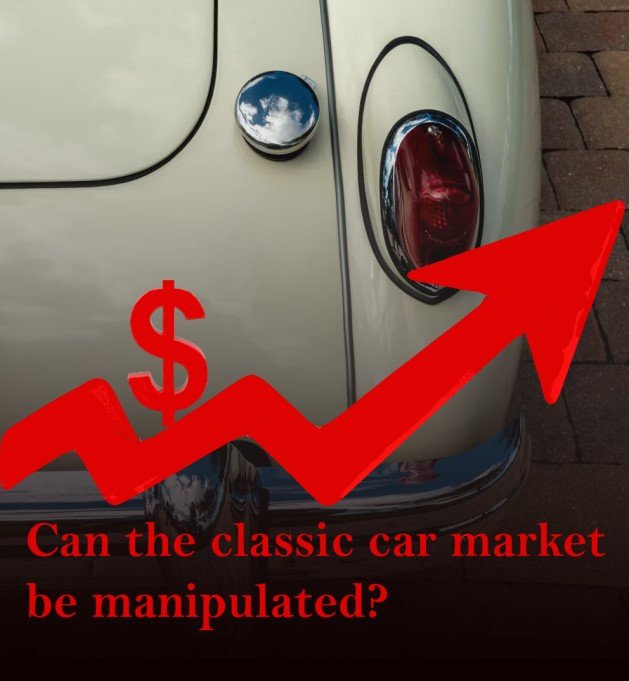Can the Classic Car Market Be Manipulated?
Sign up
Already have an account? Sign in here

We all know that the stock market can be manipulated. A rumor from a shareholder, favorable news in a financial publication, and suddenly the market is booming. Humans are naturally susceptible to influence. When combined with the potential for financial gain from such news or rumors, it creates the perfect environment for market manipulation.
But what about the classic car market? Since the beginning of my adult life, I've always consulted newspaper ads, specialized publications, and later, with the rise of the internet, specialized websites for used vehicles to search for the best deals.
With the advent of the internet, I noticed a phenomenon I had never seen before. Here's what I observed...
As I got older and gained some financial independence in the early 2000s, I started looking for my dream car, a used Porsche 911. At that time, some Porsche 911s from the late '70s to '83 or '84 could be bought for around $20,000 CAD. (It's important to note that the Canadian dollar was almost at par with the US dollar at that time.)
As a novice in buying vehicles online, I took my time to shop around and gather information about the importation process.
Suddenly, prices started to rise, and with the Canadian dollar weakening, I put my project on hold. However, I couldn't explain the surge in prices and felt a certain bitterness as my dream slipped away.
I noticed on forums and other platforms that a sudden enthusiasm for air-cooled engines was emerging. But why now, when these engines had been around for decades?
The Magnus Walker phenomenon coincided perfectly with what I had observed. These are just observations, not scientific findings, but I believe they explain part of it. If Magnus Walker did what I think he did intentionally, it's genius!
Magnus Walker was initially known as a clothing designer and gained attention on the West Coast of the United States. This is important because Magnus knew how to showcase his products, and a marketing strategy was crucial to succeeding in the competitive fashion world.
He bought his first Porsche in 1992 and joined the Porsche Club of America in 2002. His genuine love for the brand and model made him a great ambassador. He's an enthusiast who deeply loves this car, and that's why his message resonated so well with his followers.
The perfect recipe was being created, a passionate individual, an excellent car, and platforms to promote it. I believe Magnus Walker saw a business opportunity here. Who wouldn't want to combine their passion with a business that generates profits?
He then bought several Porsche 911s at low prices, opened a garage where 911s were customized in the Walker style, and showcased them on social media, praising the merits and sound of these air-cooled engines. He applied his fashion industry knowledge to his new venture. The idea caught on quickly, and the rest is history.
The price of 911s skyrocketed. Porsches that were selling for $20,000 were now selling for $100,000 to $120,000.
What’s astonishing is that all air-cooled engines benefited from this enthusiasm. Karmann Ghias and even the Porsche 914, which many considered unattractive or not "real" Porsches because of their Porsche/Volkswagen partnership origin, sold at record high prices.
What was the next model Magnus Walker adopted? The Porsche 944. How did the market respond? The prices of Porsche 944s (mainly turbo models) once again rose significantly. Porsche 944 turbos that were selling for $10,000 to $15,000 are now selling for $40,000 to $50,000.
So, let's return to the original question: Is it possible to manipulate the classic car market?
To this question, I must answer yes.
Please leave your comments. What do you think? Is it possible?
Please Login to comments
Your daily digest of everything happening on the site